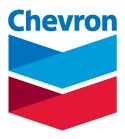The undergraduate curriculum in geology emphasizes the development of sound scientific skills, including the ability to think, observe, analyze, classify, describe, and interpret data, and the application of these skills to the study of rocks, minerals, fossils, structures, landforms, and other geologic phenomena. The Bachelor of Arts (B.A.) program offers more flexibility than the Bachelor of Science (B.S.) program in terms of allowing a program of study which combines geology with subject areas such as geophysics, history, journalism, political science, mathematics, biology, business, computer science, education, and more. However, the B.S. program is considered the preparatory degree in the field of geology and includes advanced study in petroleum geology, environmental geology, engineering geology, hydrogeology, and others.
The Environmental Geology track is designed to provide a strong foundation in geology coupled with specialized training in work on some of society’s most pressing problems, including groundwater contamination and remediation, non-point-source pollution, water resources, and geologic hazards such as earthquakes, landslides, flooding, volcanism and surface deformation. Students completing the Environmental track of the BS in Geology are prepared to go on to graduate school for an advanced geoscience degree, or for employment in the environmental industry. Environmental geoscientists typically find careers with environmental and engineering consulting companies and other industrial corporations, governmental agencies or academia. Students are well-prepared for the Association of State Boards of Geology (ASBOG) Fundamentals of Geology exam, which is required for appointment as a Professional Geologist in the State of Texas.
The Petroleum Geology track provides students with the technical preparation for eventual employment in the field of petroleum exploration and extraction. The petroleum geology track is intended to prepare students for graduate study, as well as provide training for those who may be interested in service jobs in the oil and gas industry between their undergraduate and graduate education.
What do you want to do with Geology?
Career ideas for Geology majors:
Consultant, Drilling Engineer, Environmental Journalist, Environmental Law, Environmental Protection Specialist, Geological Engineer, Geologist, Hazardous Materials Specialist, Hydrologists, Oil and Gas Exploration and Recovery, Petroleum Geologist, Seismologist, Teacher K-12

Average Salaries
Check out the salaries of Aggies who've graduated with this major!
Who Hires This Major
Search companies who have hired Aggies with this major!
